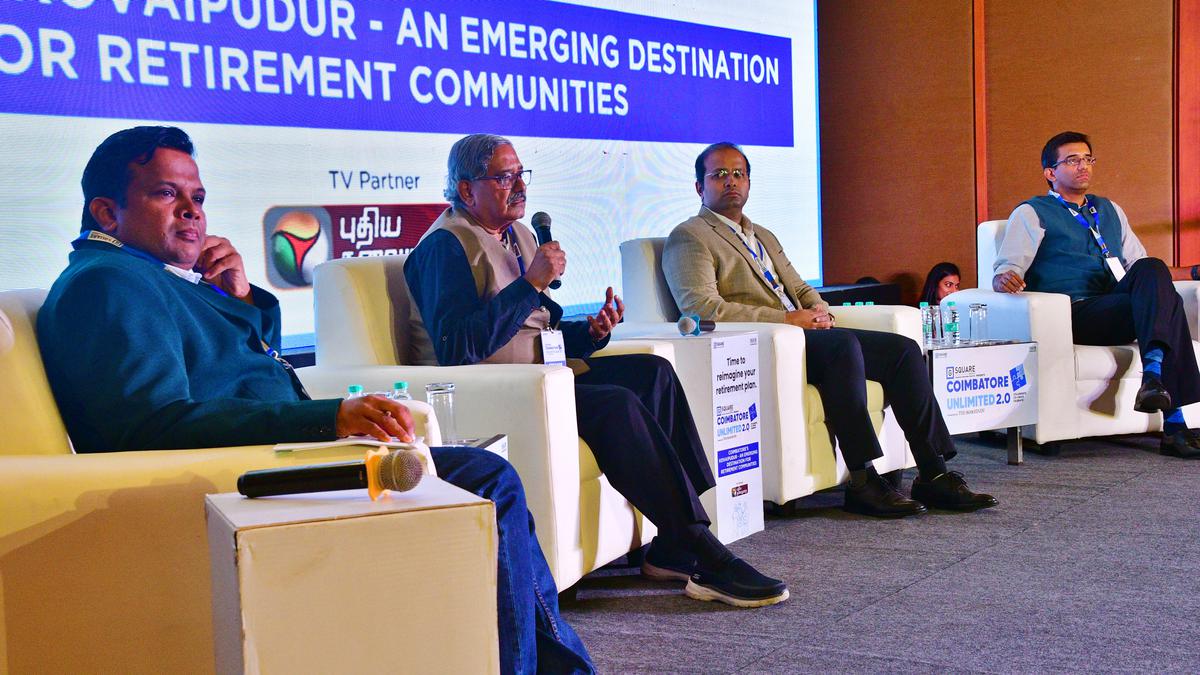
Positives of retirement communities underscored at panel discussion powered by The Hindu
The Hindu
Retirement homes offer advantages of companionship, pollution-free environment, assisted care, and preventive healthcare. Coimbatore is preferred due to its easy connectivity, affordability, and culture of respectfulness. Panellists emphasize the need to take a call early on in life to settle down in secure environment of retirement homes.
Transforming dynamics of demography, the advantage of companionship, pollution-free environment, and assisted care were among the factors expert speakers espousing the advantages of retirement community homes dwelt at length during a panel discussion here on Thursday.
The second panel discussion in the series ‘Coimbatore Unlimited 2.0’, presented by real estate developer G Square Group and powered by The Hindu on “Coimbatore’s Kovaipudur - An Emerging Destination for Retirement Communities” also witnessed a consensus among the speakers that a cultural shift strongly signifies preference of senior citizens for living independently vis-a-vis joint family system, which, they observed was, disintegrating in any case.
The panellists: R. Karthik Narayan, Founder and Managing Director of Athulya Senior Care, Chennai; A. Sridharan, Founder and Managing Director, CovaiCare, Coimbatore; and Rahul Padmanabhan, Senior Care Consultant and Medical Director, Dr. Rahul’s Elder Care, Coimbatore; and Omkar Vikram Sankar, Managing Director, Sankar Group, Coimbatore, together drove home the point that with provisions of technology-aided preventive care, and theraupatic activities, the retirement homes will be best suited for senior citizens.
It is only at retirement homes that attention could be accorded for the four need-based verticals: Independent living, assisted living, nursing, and palliative care.
If Coimbatore has come to be preferred over cities such as Bengaluru and Pune as the destination for senior citizens to spend the rest of their lives, it has much to do with the advancements in affordable healthcare; easy air, rail and road connectivity, and proximity to the Airport, Mr. Omkar Vikram said.
The culture of respectfulness among the people is a major reason for the choice of Coimbatore as a preferred destination for senior citizens. Joyful conversions, which is possible only in retirement homes, do wonders to the physical and mental well-being of senior citizens, Mr. Karthik emphasised.
Affordability was also a major factor Coimbatore could take advantage of to transform into retirement capital of India, Col. Sridharan said, observing that with ailments affecting people right from mid-forties, taking a call early on in life to settle down in secure environment of retirement homes has become necessary.













